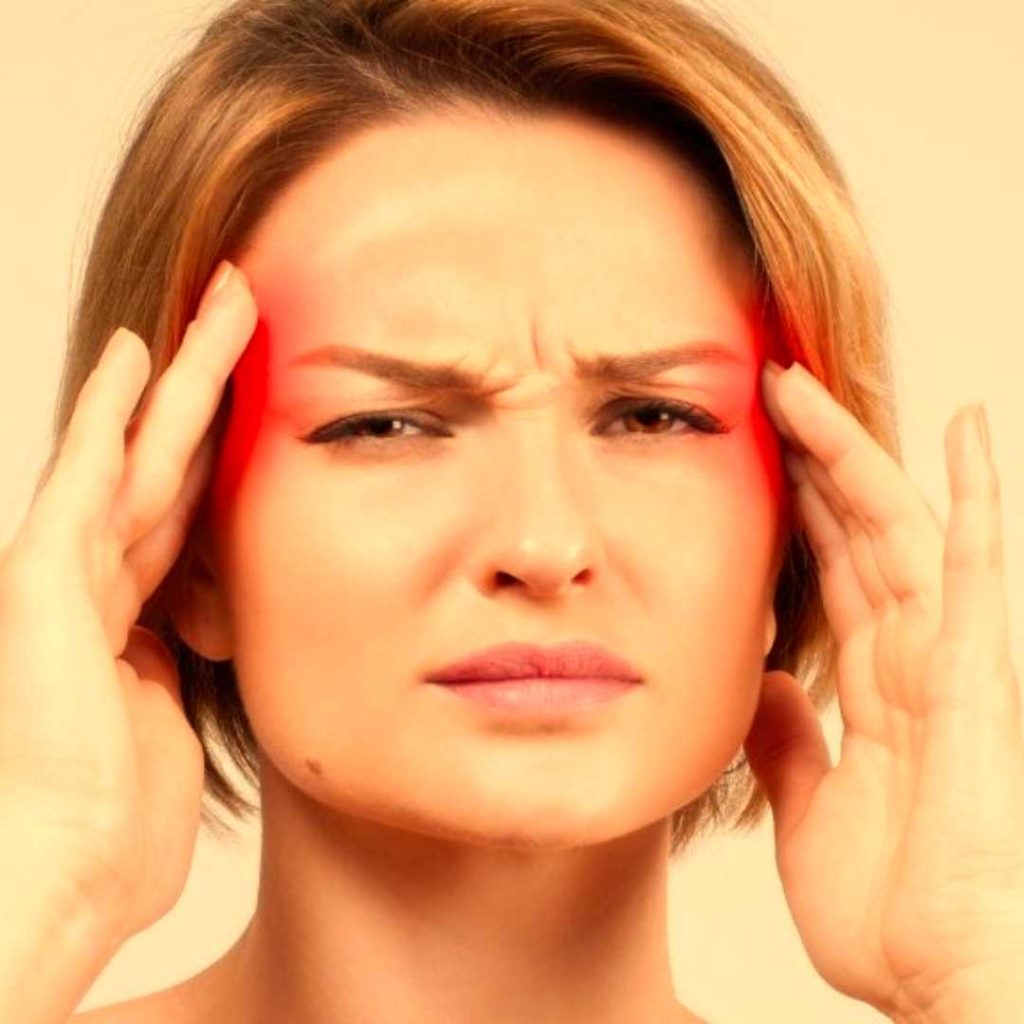TMJ Migraine Headaches Calgary
TMJ Migraine Headaches
TMJ Migraine treatment in calgary
Can TMJ cause migraines or headaches?

In North-America, over 40 million people suffer from chronic headaches and migraines. Most of them aren’t aware that a bad bite (also called malocclusion) can cause TMJ Migraines & Headaches.
In other words: When your teeth are misaligned, when they don’t fit together properly, the strain on both muscles, and the brain, can create tension headaches, migraines, cluster headaches, “Chinook” headaches, forehead headaches and other pain that may get classified as a headache.
There are many causes of headaches and just as many ways to manage them. Medical doctors often use medication to manage the pain someone has. Some will include BOTOX treatments and muscle injections.
The trouble with these treatments is that they are meant to “manage” the pain and not prevent the pain. The same goes with physiotherapy, chirodontics, massage therapists and other healthcare providers. There is a focus on reducing muscle strain of the head and neck, damping the effects of certain headaches, and masking pain with medications.
Dentists can actually help prevent the headaches from starting. Dental treatment that focuses on biomechanical strain to the body that has the effect of either creating muscle strain for tension type headaches or help provide changes in blood flow within the lining of the brain, helping migraine sufferers.
Headaches and migraines can have a medical solution, but there can be a dental solution too. Palliative care that masks pain or temporarily moderates pain is an option. But dental TMJ treatments and therapy can eliminate the pain altogether.
My Story
I was a migraine and tension headache sufferer. I had unfortunate treatments that ended up creating strain and tension in my body that expressed itself as debilitating head pain. I tried all the medications at the time. I barely managed my own pain.
I was an expert at getting specific migraine medication “on board” to slacken the pain from an upcoming migraine. I popped Ibuprofen every morning like it was candy. I joked that when I walked the pain pills made my stomach rattled, sounding like a castanet. The number of over the counter pain pills I took in a day worried me.
Having a migraine is not beneficial as a dentist. Mind numbing head pain is counter-productive when treating someone’s toothache. I had to cut back the time I could work to manage my own head pain.
By chance, I took some courses on how to treat TMJ related migraines. Remember that old saying “Doctor, heal thyself”? That is what I did. I made my first dental orthotic to help my own pain. That was in 2002. My last migraine I ever had was the day I placed my new (and crude) dental orthotic in my mouth. I have not had a migraine since (wood being knocked for good luck).
While not all migraines can respond to just dental therapy, it is possible that many migraine sufferers are just like me. Those people can be helped by a dentist. Along with other healthcare providers such as Upper Cervical Chiropractors and Bio mechanical therapists, there is a better chance of regaining your life.
TMJ Migraine HeadacheTreatment near me
Connect with Dentalife
TMJ Migraine Headaches FAQ's

What do migraines feel like?
Probably one of the most common mistakes people make is calling their head pain a migraine. The term migraine is tossed around easily in the general population to indicate a “mean” headache.
True migraines though do not always show up the same way. Some are on one side of the head. Some express pain around the head like a band of pain.
Some migraines will start with an aura or change in vision. Some will create a taste in the mouth. Some will start slow. Some will start with a snap. Some migraines come from changes in atmospheric pressure. In Alberta we call these “Chinook Migraines”. Some will be triggered by food. Some start with the allergy season.
Whatever the presentation, the cause has been shown as a buildup of blood pressure on the brain. Either through dilation of the blood vessels in the “meninges” or a lack of good blood drainage through the neck. Most recent medications for migraines have concentrated on the hormone that starts it all, called CGRP or Calcium Gene Related Protein.
But dental treatments can help control the release of CGRP and thus help prevent migraines in the first place.
Do TMJ headaches go away?
Headaches are signals that something is wrong. It could be medical. It could be serious. It should be checked out and examined. Do not take headaches as a mere inconvenience. Tylenol is not a natural food source. It is important to know what is causing a headache in order to treat it:
Some headaches are a symptom of a sleep disturbance issue. They show up in the morning as a dull ache.
Some headaches are muscle related. Or more accurately muscles and their lining called fascia. These often form “trigger points” of pain caused by adhesions within the fascia.
Some headaches are neural in origin. Headaches can be started with a neural overload to the brain stem of a nerve called the “Trigeminal Nerve”. Overloading of this nerve causes a release of a hormone called CGRP. This CGRP is delivered to vessels in the lining of the brain. CGRP causes blood vessel dilation and this has been proven to begin the brainstorm leading to migraine attacks.
Some headaches are due to head/neck misalignment that can alter blood drainage out of the brain.
What if my doctor does not solve my headaches?
If you have trouble finding the cause or causes of your migraine or headache, get a second opinion from a variety of healthcare providers. Remember that it is most likely not just your head that is involved in your headaches. Your body is all connected and signs and symptoms causing headache may affect the whole body.
Can TMJ cause migraines?
It has been shown that over stimulation of a part of the lower brain, called the Trigeminal Nucleus, will cause the vaso-dilator CGRP to be released in the brain. So what causes this over stimulation of the brain? It turns out that those areas that the Trigeminal Nerve services can be the culprit.
A bad bite, uncontrolled clenching and grinding of teeth, a barometric pressure increase that stimulates the sinus lining, all can contribute to the Trigeminal Nerve overload and in effect stimulate a migraine.
Treating causes of migraines to help prevent their occuring is better than merely masking the migraine when it comes.

REVIEWS FOR DENTIST DOWNTOWN CALGARY
The Alberta Dental Association & College does not allow dentists to display any patient-reviews directly on their website.
Please find us by Googling: ‘Dentalife Patient Reviews’
TMJ Headache treatment in calgary
How to get rid of TMJ Migraines or Headaches?

“I want to stop having to always take medication for my headaches.”
… is what we hear very often from TMJ patients.
How to get rid of TMJ Migraines and Headaches? The answer is simple: Seek TMJ treatment. Because your TMJ Migraines & Headaches will not miraculously disappear.
Dental malocclusion, muscle imbalance, strain from tooth clenching and grinding all affect the workings or physiology of your body. Bringing balance back to the body can help you fight the painful occurrence of both tension headaches and TMJ migraines.
Getting rid of a TMJ disorder requires realigning and rebalancing your bite. Meaning: You will need Dental Treatment to make your teeth properly mesh together again. A TMJ Migraines & Headaches Diagnosis is necessary to define the severeness of your TMJ disorder. A detailed TMJ Disorder treatment plan is required to define the best path forward according to your personal condition.
